Uncategorized
-

-
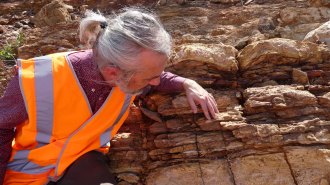 Life
Life1.6-billion-year-old steroid fossils hint at a lost world of microbial life
Molecular fossils suggest the existence of a lost world of primitive eukaryotes that dominated aquatic ecosystems from at least 1.6 billion to 0.8 billion years ago.
By Soumya Sagar -
 Astronomy
AstronomyA star cluster in the Milky Way appears to be as old as the universe
Globular cluster M92 is about 13.8 billion years old, a new calculation suggests. Getting the age right could help resolve a bigger cosmic conundrum.
-
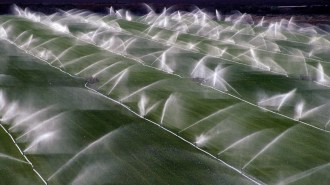 Earth
EarthIrrigation may be shifting Earth’s rotational axis
Computer simulations suggest that from 1993 to 2010 irrigation alone could have nudged the North Pole by about 78 centimeters.
By Sid Perkins -
 Genetics
GeneticsThe first gene therapy for muscular dystrophy has been approved for some kids
The U.S. Food and Drug Administration cleared a shortened version of a gene for a muscle protein to be used in 4- and 5-year-olds with muscular dystrophy.
-
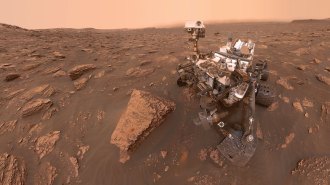 Astronomy
Astronomy‘Under Alien Skies’ imagines what the sky looks like on other planets
Astronomer Philip Plait’s new book takes readers on a thrilling ride to Mars, Pluto and even a black hole.
-
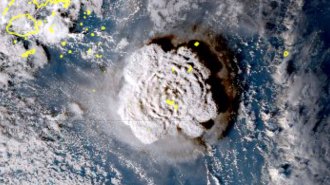
The Hunga Tonga eruption sparked the highest-altitude lightning ever recorded
The plume from the 2022 eruption spawned flashes of lightning that started 20 to 30 kilometers above sea level.
By Skyler Ware -
 Astronomy
AstronomyAlien life may be possible even at the Milky Way’s edges
Phosphorus detected far from the Milky Way’s center seems to extend the zone where life could exist in the galaxy by thousands of light-years.
By Bas den Hond -
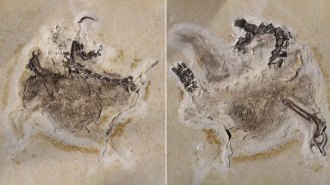 Paleontology
PaleontologyPaleontology has a ‘parachute science’ problem. Here’s how it plays out in 3 nations
When researchers study fossils from lower-income countries, they often engage in dubious or illegal practices that can stifle science.
-
 Math
MathHere’s how we could begin decoding an alien message using math
A new mathematical approach looks for order in strings of bits – without relying on human assumptions.
-
 Astronomy
AstronomyIn a first, JWST detected starlight from distant galaxies with quasars
Until JWST’s sharp infrared eyes came along, it wasn’t possible to see the galaxies hosting extremely bright supermassive black holes called quasars.
-
 Genetics
GeneticsDaphne Martschenko is a champion for ethical, inclusive genomics research
A bioethicist focused on the genomics revolution, Daphne Martschenko fosters open discussion through “adversarial collaboration”